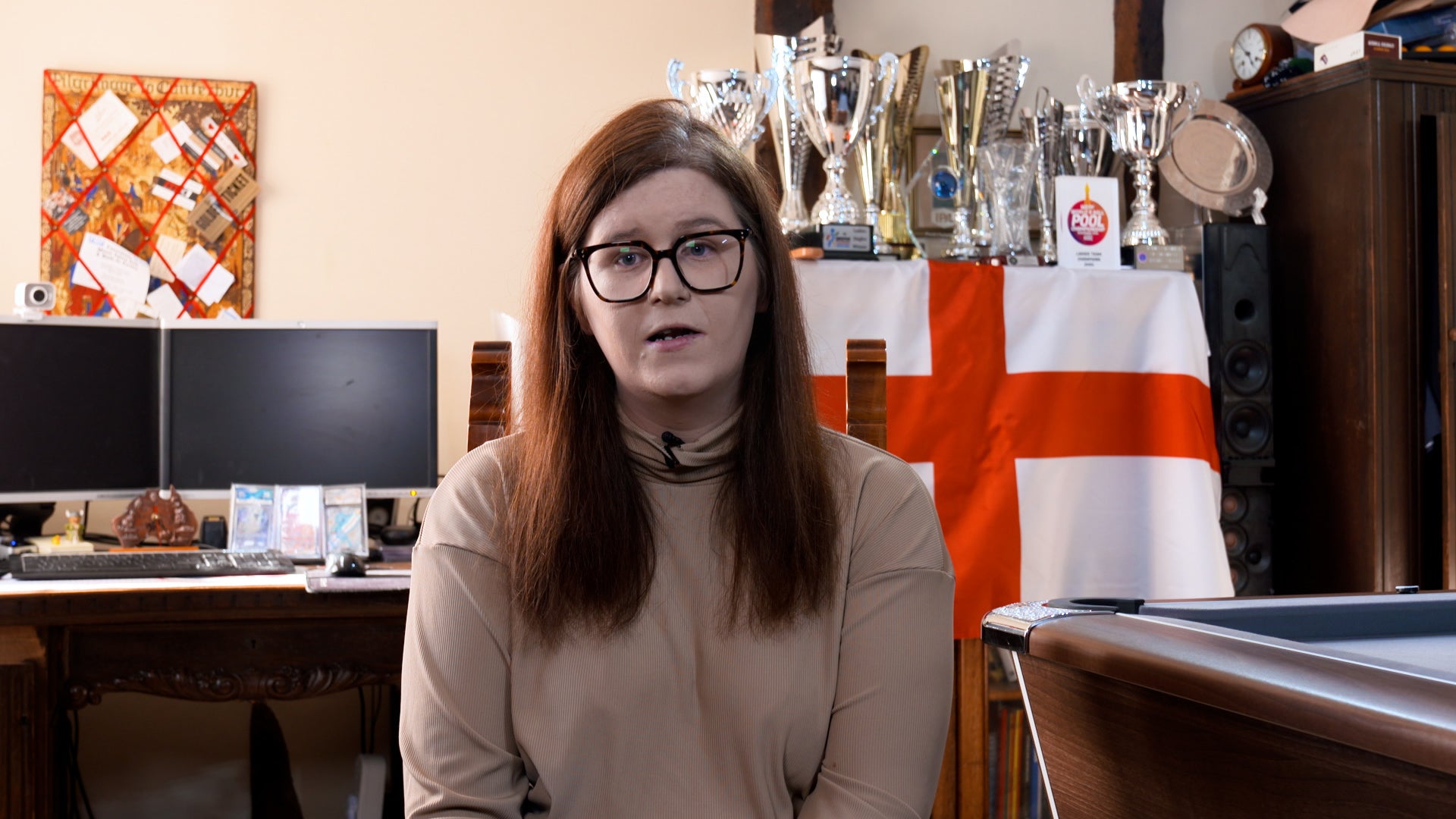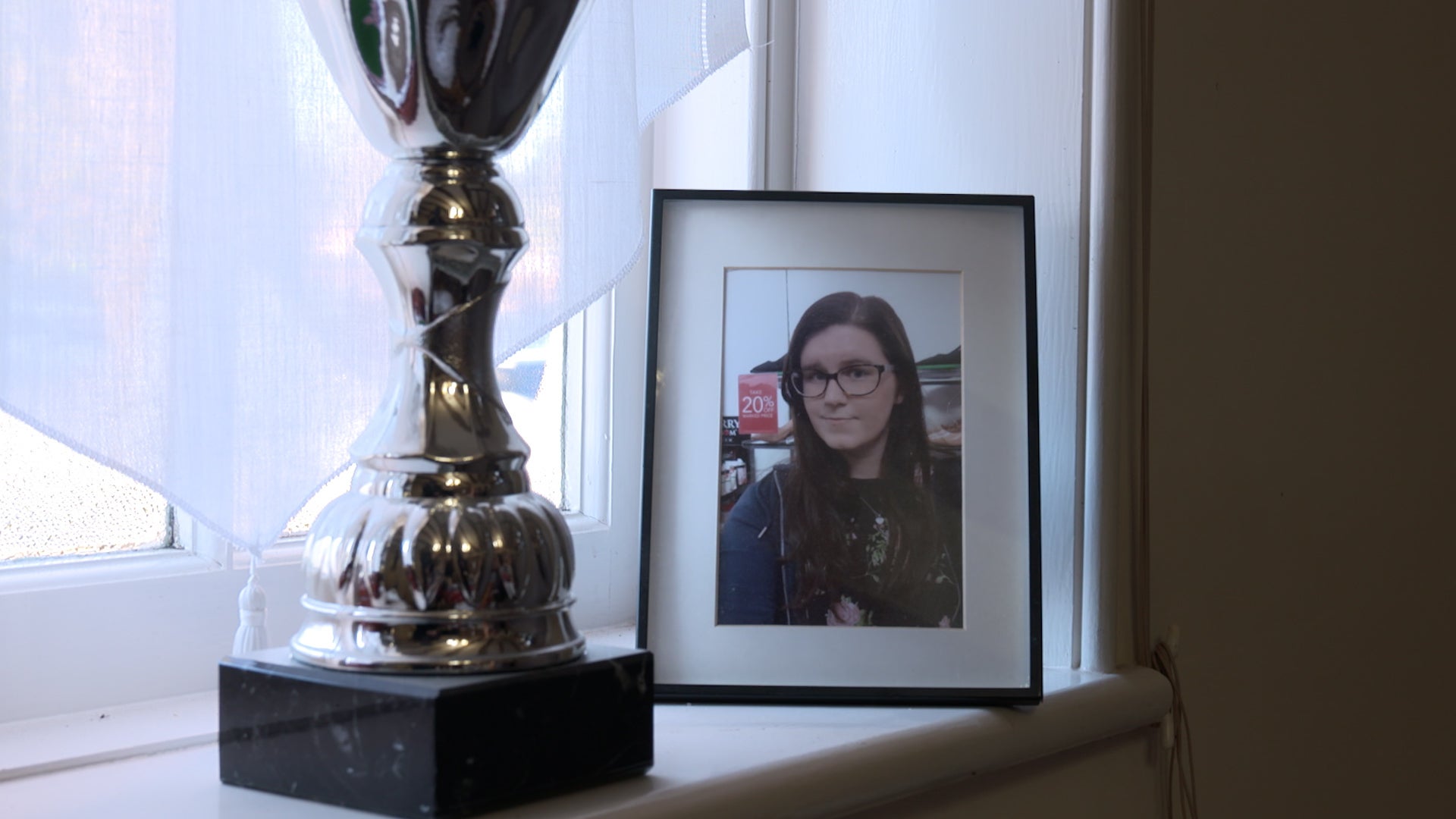Transgender pool player in court battle after being banned from competing in women’s events
Exclusive: Harriet Haynes taking legal action against English Blackball Pool Federation move to stop her playing in women’s competition
A transgender pool champion is taking legal action against one of the sport’s governing bodies in England after she was banned from playing in women’s tournaments.
Harriet Haynes, who is among the world’s top 10 best players in the women’s competition, was left stunned by the surprise decision of the English Blackball Pool Federation (EBPF) in August last year to restrict their ladies’ events to people who were born female, which disqualified her from competing in eightball games.
Speaking to The Independent, Ms Haynes opened up about her battle to see the inclusion of trans women in the federation’s ladies’ competitions, saying: “All I’ve ever wanted is to be able to play like any other woman.“
The EBPF organises county competitions around the country, which are broken up into categories for women and men, as well as for various age groups. In August 2023, the body announced that ladies’ events would only be open to people who were born female, in a move they said was intended to make sure that the game was played with “equality and fairness for all”.
Ms Haynes criticised the Federation’s actions, telling The Independent: “I was at the EBPF tournament the day before the ban was announced. Absolutely nothing was mentioned.”

The EBPF’s position differs from two other pool organisations, the Ultimate Pool Group – which organises tournaments for eightball pool professional players – and the World Eightball Pool Federation, which oversees international tournaments.
These groups also tried to ban trans women from playing in ladies’ competitions, making their announcements before the EBPF. However, both reversed their decisions some weeks later – announcing that they would be following guidance from the International Olympic Committee.
However, the EBPF have stuck to their position and, as a result, Ms Haynes is now bringing legal action against the sports body saying that she has been discriminated against because of her protected characteristic, namely her gender reassignment.

The landmark case is expected to be heard in April next year. Ms Haynes has already had a promising career in the sport, leading her to be ranked ninth in the world.
Speaking about the impact of the EBPF’s ban on her career, Ms Haynes said: “After the decisions were announced on social media, I was beyond stunned and saddened. My hobby and passion which meant so much to me was taken from me practically overnight.”
In response to the threat of legal action, the EBPF created a tour that was open to both men and women, which Ms Haynes is eligible to compete in. However, she has said this misses the point, adding: “I am a woman and I have no advantage so why should I have to play in a category that is going to cast a spotlight onto me and the fact that I have transitioned? I would feel incredibly embarrassed by being forced into a position where I was the only female playing in an open category.”
She continued: “I do not consider that I have an unfair advantage because I went through male puberty. My success in female pool is down to the fact that I practised more than other females during Covid, that I play at any opportunity I can against various players (both male and female), I have had coaching and I have and am still prepared to travel the length and breadth of the country to play in cue sports that are not usual for me, all so that I can improve.”
In their case, the EBPF will argue that players who were born male and have been through male puberty have a competitive advantage over players who were born female and have not been through male puberty.

They argue that cis men and trans women achieve a higher average break speed on their opening shot than cis women.
“Cis” is short for cisgender, meaning someone whose gender identity matches the sex they were assigned at birth.
The EBPF also argue that trans women benefit from a greater hand span, stronger fingers and longer limbs.
Ms Haynes contests this claim, arguing that plenty of players who were born female have a better break shot than hers. She argues that other factors, such as timing, where to place the cue ball, and the weight of the cue, all contribute to a good break shot.
In her argument, she also makes the point that taller players don’t have an advantage over shorter opponents because the use of a “rest” – an extension that you can rest your cue on for shots that can’t otherwise be reached – levels any minimal advantage that might be gained.
Bigger hands are also not necessarily an advantage in the sport, Ms Haynes argues, as pool players often have to place their bridging hand (the hand on which the cue rests) into small gaps between the balls.
She added: “From what I have seen and observed height or size is not the crucial determining factor in the sport of eightball pool.”
The case will be heard by a county court judge in April next year, but could then head to the High Court on appeal.
Ms Haynes’ lawyer, Matt Champ at Colman Coyle, said: “When we were approached by our client about helping out with this case, it seemed to us that the decision that had been taken by the defendants was wrong, outside the parameters of the Equality Act 2010 and completely unevidenced.
“We pride ourselves on robustly standing up and defending our clients’ rights without fear or favour regardless of race, religion, sexuality or sexual orientation. We look forward to helping our client prove that the actions taken against her were unlawful and discriminatory and ensuring that she obtains the proper relief available from the courts.”
The EBPF declined to comment.